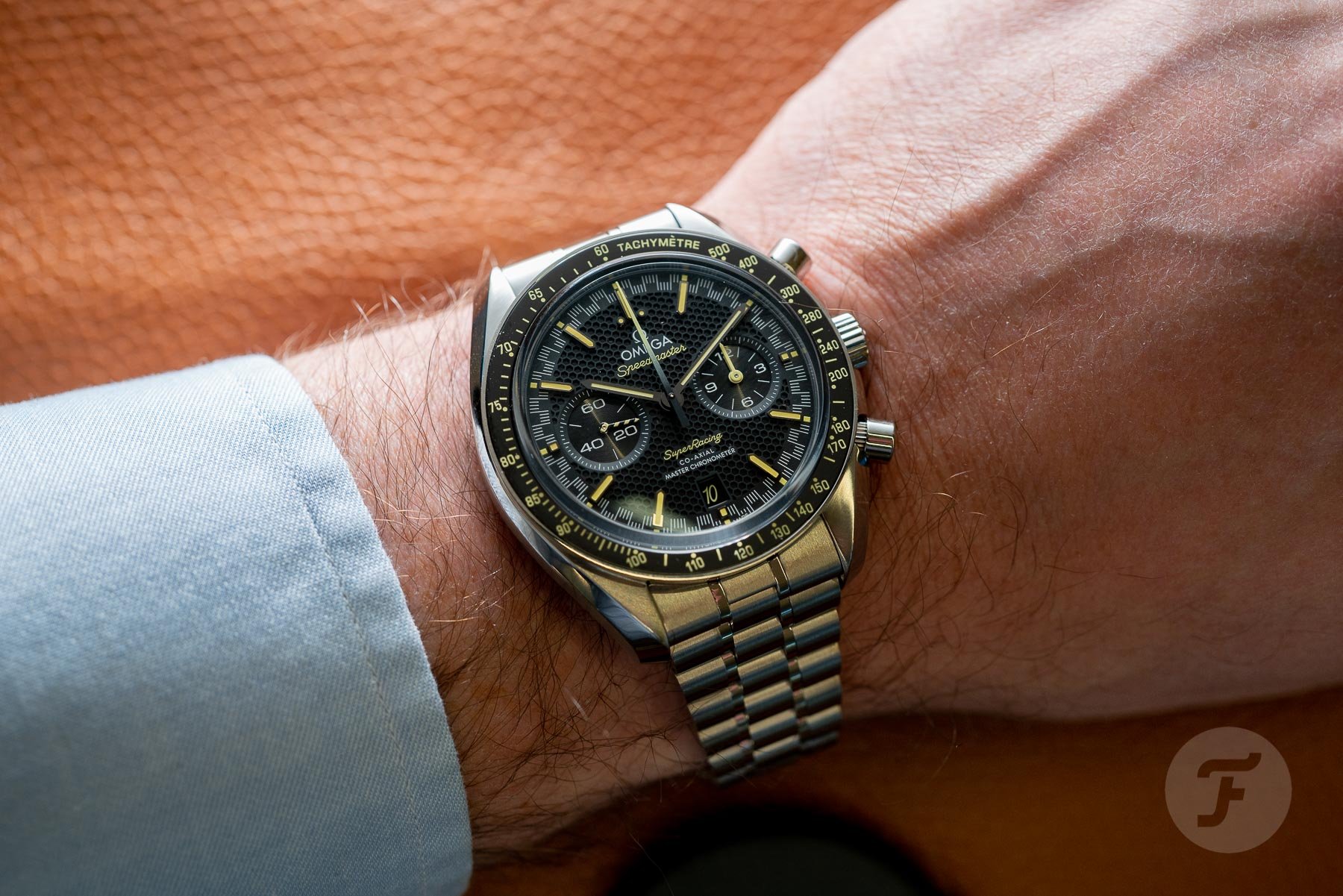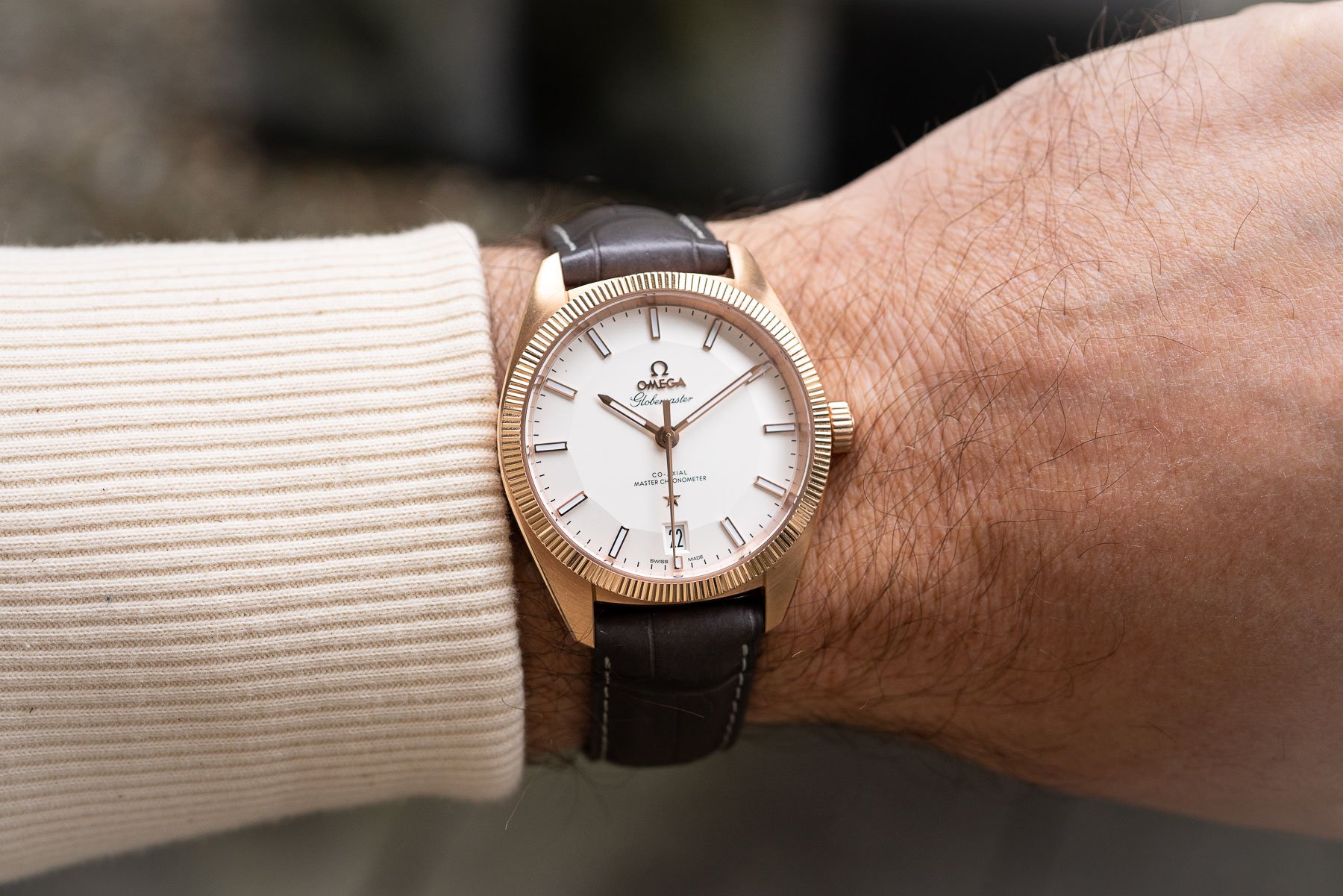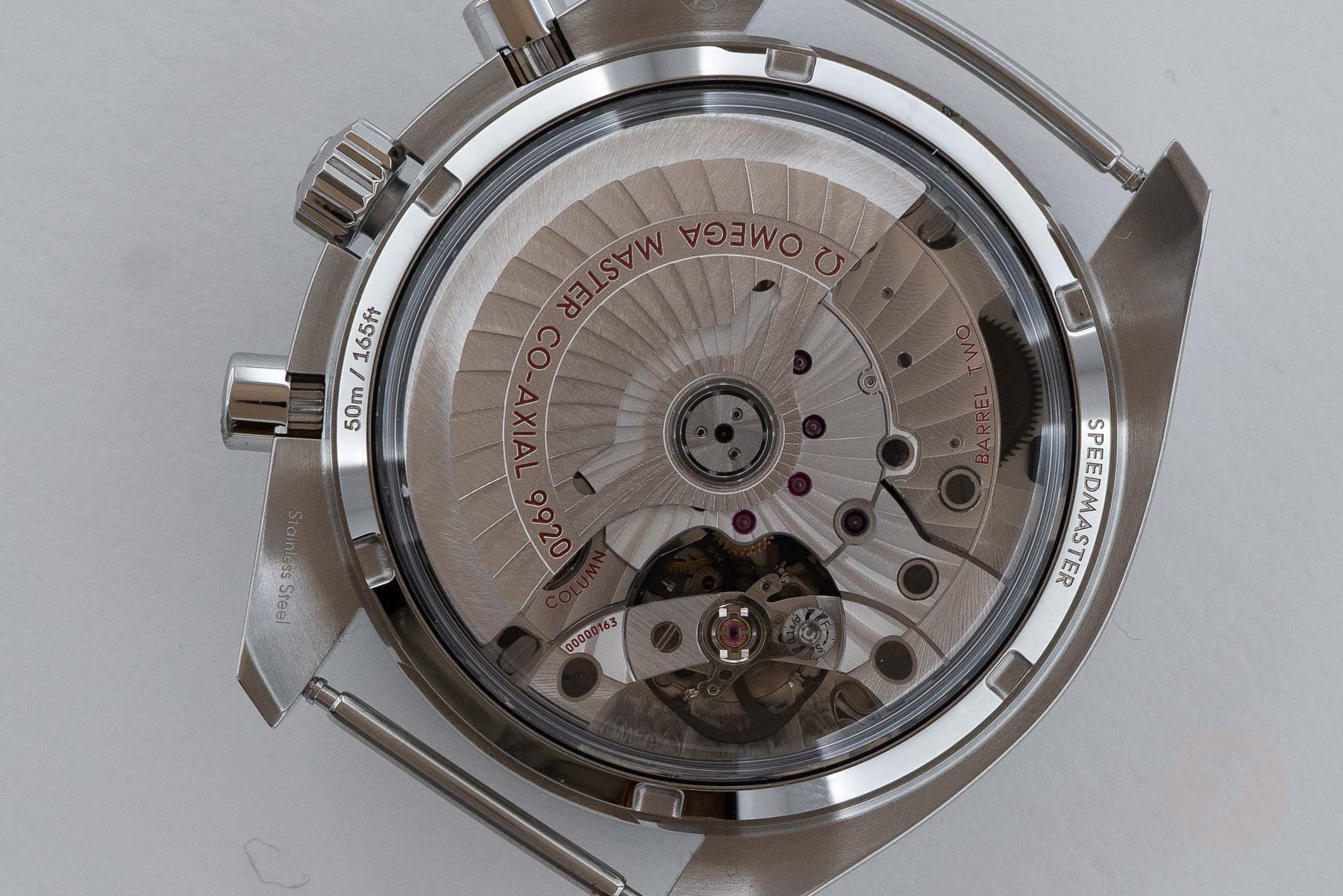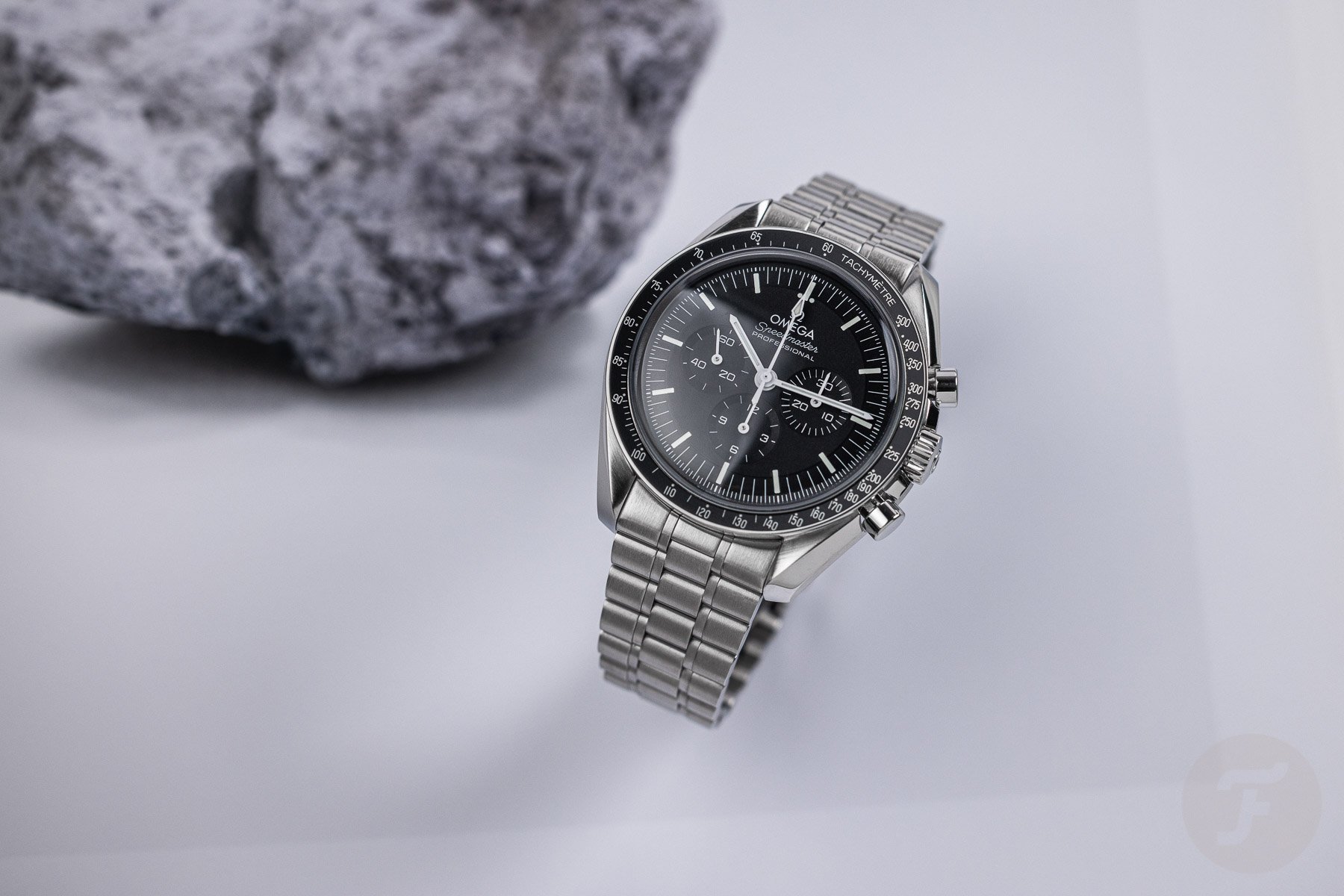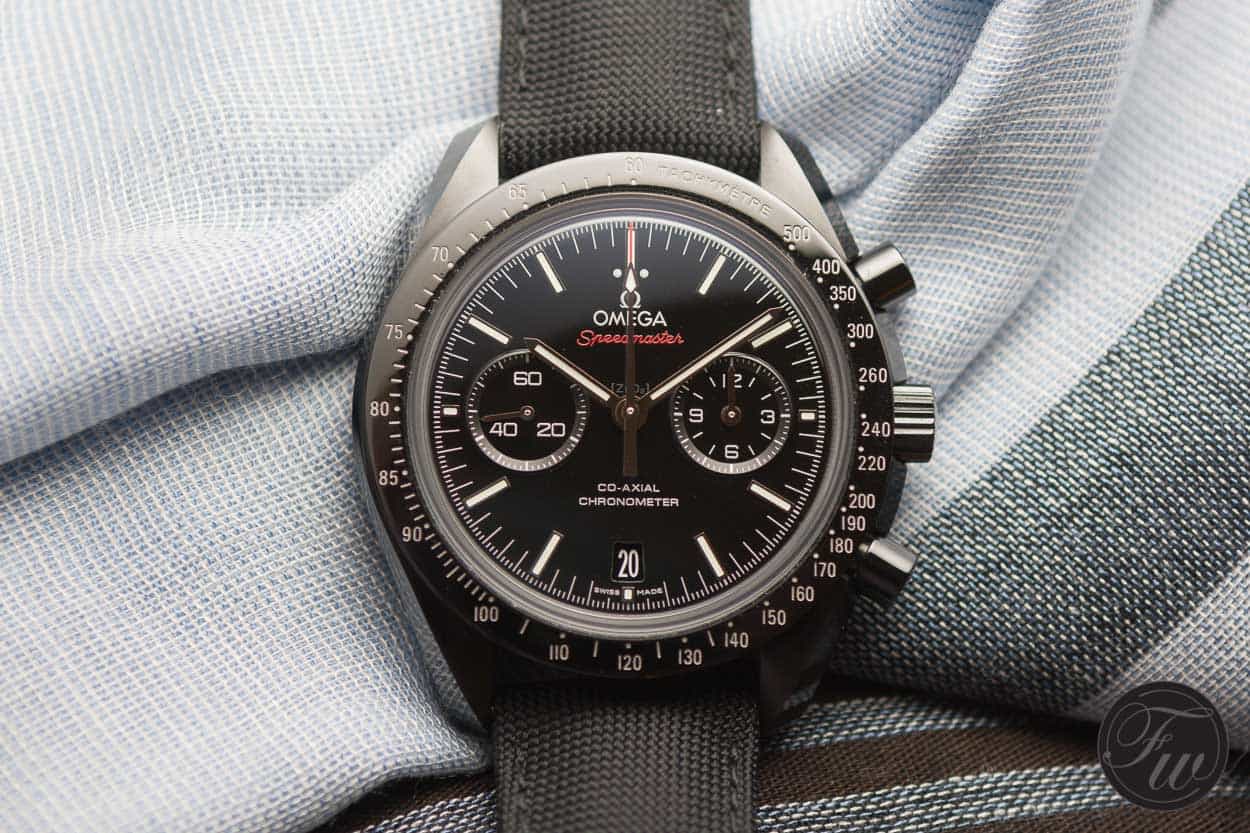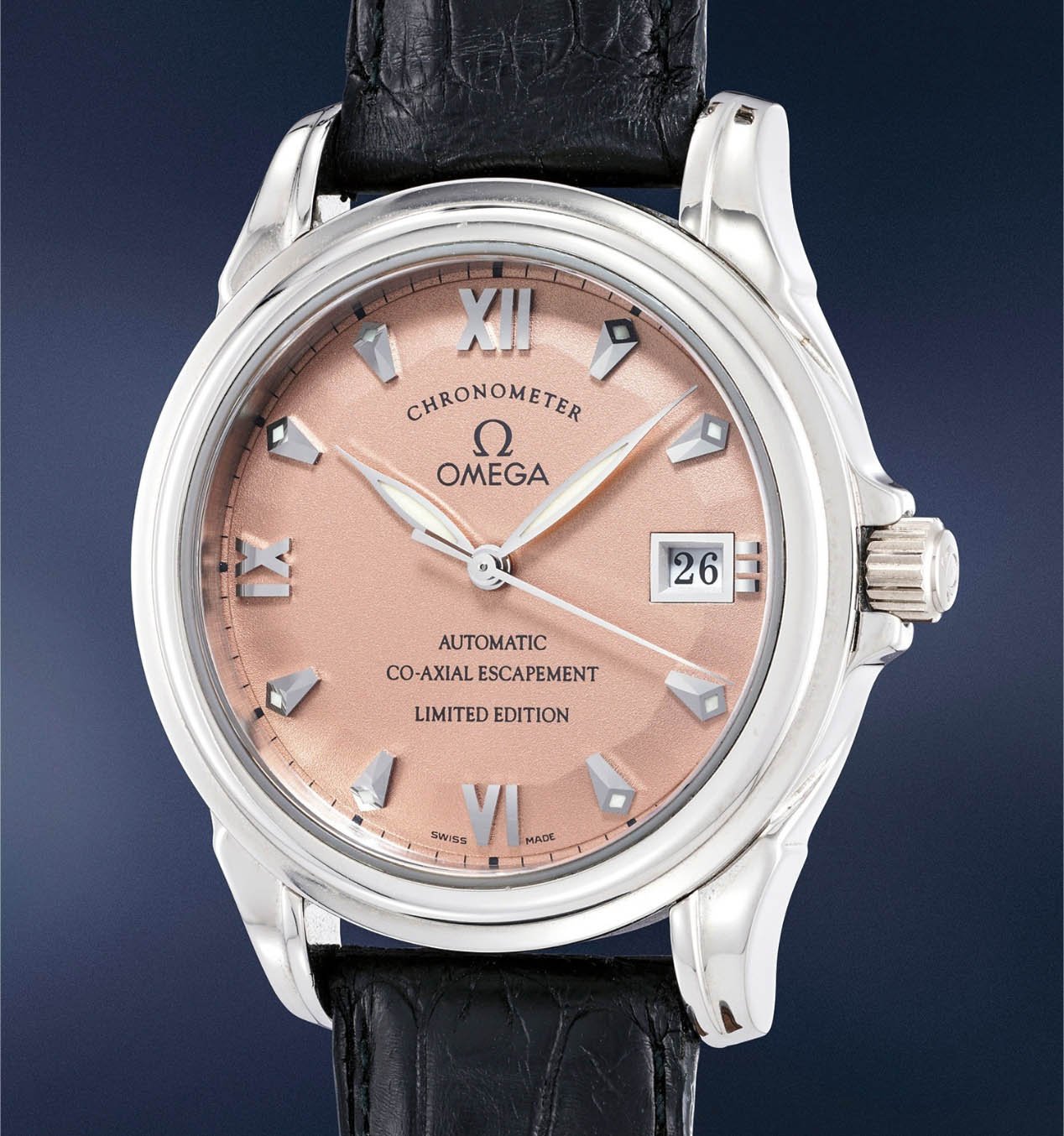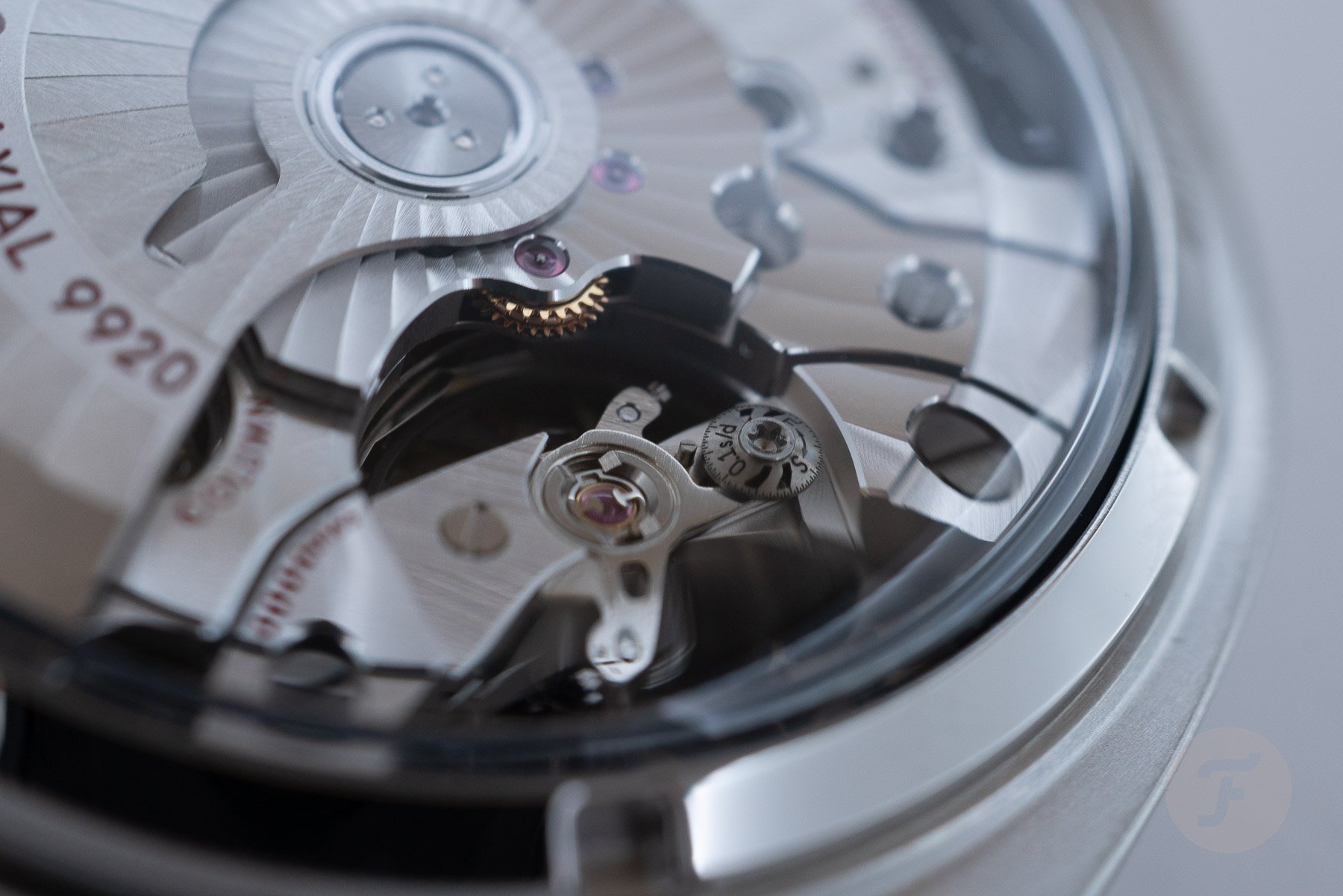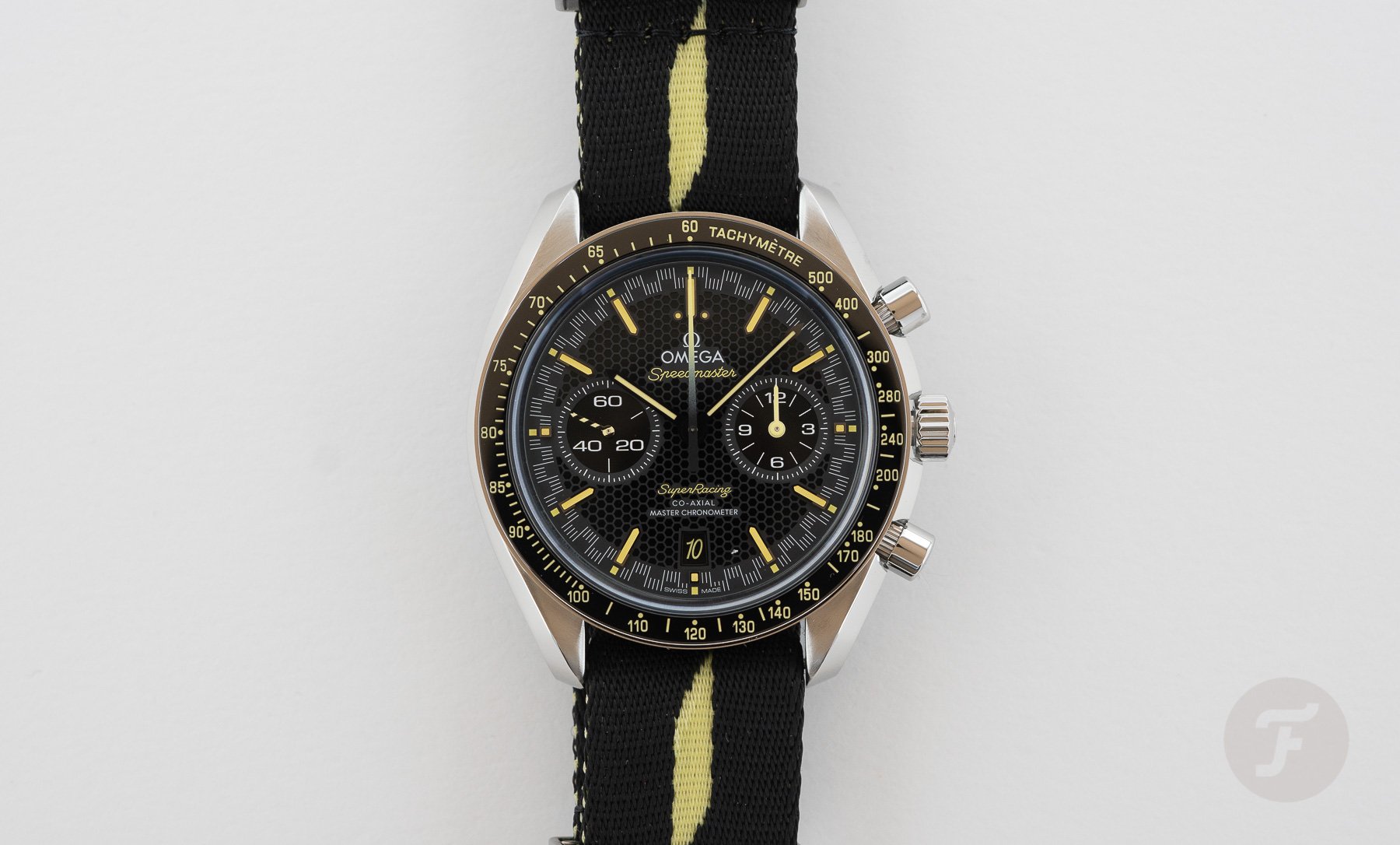The Omega Speedmaster With The Spirate System — The Super Racing Is Blazing The Trail
Thus far, we’ve seen only one Speedmaster introduction in 2023, the Super Racing model with Omega’s Spirate technology. This watch is finally making its way to customers’ wrists, and we’re curious to see how owners will experience the improved accuracy of this chronograph. We’re also incredibly interested to see what Omega watches will receive this new technology next.
Omega Speedmaster with Spirate System
During the introduction in January, Omega made it clear that its new Spirate technology will further improve its Master Chronometer-certified watches. With Spirate, the brand can regulate them to have an average daily deviation between 0 and +2 seconds.
Omega has used the 44.25mm Speedmaster Super Racing with a honeycomb dial as a “pathfinder” (thanks to Ashley from OF for this perfect description). The brand did the same with the Aqua Terra “Bumblebee” in 2013, paving the way for technical developments in fighting magnetism up to 15,000 gauss. If you’re not in love with the aesthetic of the Speedmaster Super Racing, you can wait until Omega updates the watch you love with the Spirate system.
When will other watches get the Spirate system?
Just as the De Ville was the first model with the Co-Axial escapement in 1999, the Aqua Terra was the first with an ultra-antimagnetic movement in 2013, and the Globemaster was the first with a Master Chronometer certification in 2015. Likewise, it will just be a matter of time before Omega deploys the Spirate system to its other models. However, when we asked the brand, we received no definitive answer about how long the process will take.
I know of some Omega watches that need an update anyway, so why not enhance them with the Spirate technology?
The 25th anniversary of Omega’s Co-Axial escapement in 2024
Now that the Speedmaster Super Racing is (slowly) being delivered, it means that Omega can start equipping more calibers with this eccentric adjustment mechanism. However, I don’t see that happening in 2023. But since 2024 marks the 25th anniversary of Omega embracing George Daniels’ Co-Axial escapement, it almost seems like destiny to have the Co-Axial movements equipped with the Spirate system as well.
We can debate whether the Speedmaster Super Racing was the perfect watch in which to launch the Spirate technology. Nevertheless, the 9900-series calibers are some of Omega’s most recent movements. One of the commenters (Matthew Johnson) stated below the introduction article, “I absolutely love this little competition on accuracy by the big brands! The watch isn’t the story here […].” The watch wasn’t the story, but Omega did try linking it to earlier developments and the Aqua Terra Bumblebee, giving the Speedmaster Super Racing some of the same design elements.
An updated Moonwatch? Perhaps in the future!
I wouldn’t have minded seeing an updated version of the 3861 caliber in the standard Moonwatch. However, I can also understand why Omega didn’t go that route. Doing so would’ve meant producing quite a large volume of the Spirate system since the Moonwatch is one of the brand’s best-selling watches. The same applies to the Seamaster Diver 300M with the 8800-series movement.
Dark Side of the Moon
Perhaps more fitting and realistic is a long-awaited update of the Speedmaster Dark Side of the Moon. This model, which debuted ten years ago (time flies), still uses Omega’s caliber 9300. This is odd considering that most other two-register Speedmaster models have received upgraded 9900-series calibers since 2016. This year would have been an excellent opportunity for such an update of the Dark Side of the Moon, but Omega decided to focus on the 75th anniversary of the Seamaster collection. The Ploprof Summer Blue edition could have been another one for the Spirate system, but that is so incredibly niche that it would have gone unnoticed among a larger audience.
The debut and commemoration of Co-Axial tech
In 1999, Omega introduced the Co-Axial escapement in a De Ville model that showed a great resemblance to a 1960s Constellation. Rather than that, I think that it would’ve been more appropriate to use a then-newly designed Constellation to introduce the new George Daniels-designed escapement. Why make a vintage Constellation lookalike when there were fresh Constellation models in the catalog already? Next year, for the 25th anniversary of Omega’s Co-Axial escapement, I would love to see a new 39mm Constellation Globemaster with the Spirate system included.
Investments of this magnitude are not just for a few models
Ultimately, I believe the Spirate technology will make its way through much of Omega’s catalog. Developing something like the Spirate system for just a few models doesn’t make sense. The time and money spent on research and development is significant, and just like the Co-Axial escapement, this technology sets Omega apart from its competitors.
When Omega introduced the current Moonwatch family, I feared that the use of a new Co-Axial caliber would keep the hardcore Speedmaster enthusiasts away. After all, it’s different from the 321 and 861 calibers that NASA used. Thankfully, though, the opposite happened. People warmed up to the new Moonwatch quickly, especially due to the design elements from the vintage reference 105.012. Those who want to stay true to the models that NASA used need to go vintage anyway. For the most people, the story about the Speedmaster on the Moon is enough. The watch doesn’t need to be 100% the same.
As soon as Omega can ramp up the production of the Spirate system and embed it in other movements, I’m sure the Moonwatch’s caliber 3861 will get an upgrade as well.
Till then, if you want to be an early adopter of innovation (in hindsight, I wish I’d bought that Bumblebee Aqua Terra…), the Spirate system is only available in the Speedmaster Super Racing.
What models would you like to see get the Spirate upgrade next? Let us know in the comments.

